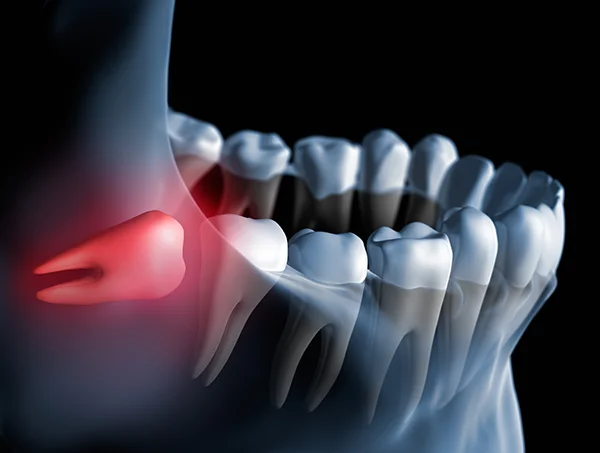Wisdom Teeth Extraction Wisdom teeth, which are also called third molars, are the last set of teeth to emerge. This usually happens in the late teens to early twenties. There are generally four wisdom teeth: two on the top jaw at either side of the back of the mouth, and two on the bottom jaw on either side at the back of the mouth. Some individuals never get wisdom teeth at all, and others may only have two. Wisdom teeth, which are also called third molars, are the last set of teeth to emerge. This usually happens in the late teens to early twenties. There are generally four wisdom teeth: two on the top jaw at either side of the back of the mouth, and two on the bottom jaw on either side at the back of the mouth. Some individuals never get wisdom teeth at all, and others may only have two.Why Are Wisdom Teeth Extracted So Often?While wisdom teeth can grow in without any issues, many people experience problems such as impaction, overcrowding, or infection due to limited space in the jaw. In these cases, wisdom teeth extraction becomes necessary to prevent pain and maintain oral health. What You Need to Know About Wisdom Teeth ExtractionWhile wisdom teeth extraction can be intimidating, it is a very common restorative procedure. Our dental specialists use advanced techniques and anesthesia to ensure the safety, comfort, and successful recovery for all of our patients. What Happens During the Procedure?After receiving sedation, the extraction procedure begins with an incision in the gum tissue to expose the tooth and bone. If the tooth is impacted or difficult to access, it may be broken into smaller pieces for easier removal. Once the tooth is extracted, the area is cleaned, and the gum is stitched closed if necessary. Finally, gauze is placed over the site to control bleeding and aid in clot formation, starting the healing process. You may only have one wisdom tooth pulled at a time, or all four. It depends on the condition of your teeth and what the dentist advises. Some patients prefer to have them all removed at once. Will I Be Able to Drive Home After the Procedure?If you receive only local anesthesia for your wisdom tooth extraction, you should be able to drive yourself home afterward. However, if you undergo sedation or general anesthesia, it is crucial to arrange for someone to drive you home, as you may still feel dizzy or disoriented after the procedure. We do not recommend operating a vehicle under the influence of sedatives or anesthesia. How Soon Can I Resume Normal Activities After the Extraction?Downtime following a wisdom tooth extraction varies from person to person. However, most people can resume normal activities within a few days. During recovery, avoid strenuous activities, such as heavy lifting or vigorous exercise, for at least the first few days to minimize the risk of complications and promote healing. Our dentist will provide specific post-extraction care instructions tailored to your needs, including dietary recommendations and guidelines for oral hygiene practices. Are Your Wisdom Teeth Bothering You?Symptoms that may indicate the need for wisdom teeth removal include persistent pain or discomfort at the back of your mouth, swollen or bleeding gums, and difficulty opening your jaw. You might also notice swelling around your jaw, bad breath, or an unpleasant taste caused by infection or trapped food particles. In some cases, wisdom teeth can cause crowding or shifting of other teeth, leading to misalignment. If you experience any of these symptoms, it's important to contact our dentist, Dr Mehrdad Safavian, for evaluation. Call Avery Dental Center at (614) 789-9000 to learn more! |